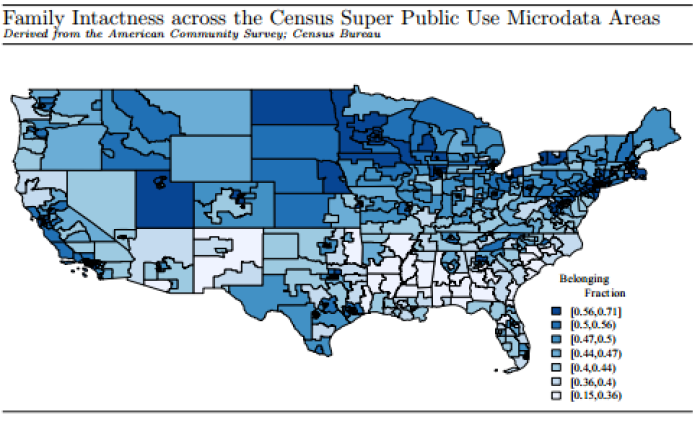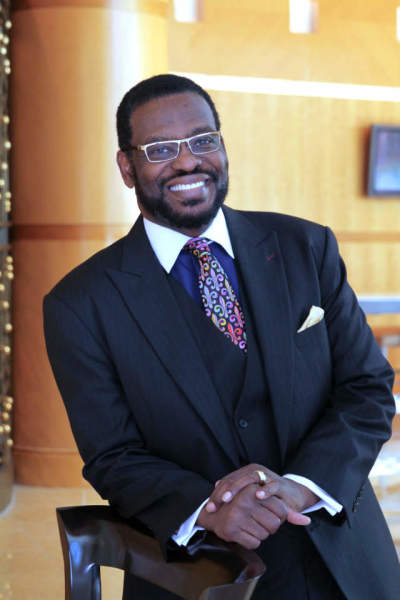Study Shows US Bible Belt Has Highest Rate of Family Break-Ups; Is it About Faith or Race?

A study on family breakup as it effects children on the cusp of adulthood revealed that more children experience family breakup before adulthood in the South, well-known for its religious "Bible belt," according to the Family Research Council.
"The Bible belt is in deep, deep trouble on family," Pat Fagan, director of The Family Research Council's Marriage and Religion Research Institute (MARRI), told The Christian Post in an interview on Thursday. "Those who worship less have more family intactness and those who worship more have less," Fagan marveled.
Bishop Harry R. Jackson Jr, senior pastor of Hope Christian Church and founding president of High Impact Leadership Coalition, explained the nuances of different ethnic groups, most notably the high rates of family dislocation in the black community. "I think black families are experiencing the worst of the social trends, but they are leading in that direction," Jackson declared. "Half of our children do not feel that they are loved and accepted in their families." While the Asian family has the lowest rates of breakup, Jackson argued that they are going the same way.
The Study and Its Results
The Fourth Annual Index of Family Belonging and Rejection, published Wednesday, measures whether or not kids who are about to become adults have experienced a breakup in their family. For those "age 15-17, towards the end of their childhood at home," the study measures "what proportion of children are still in an intact, married family," Fagan explained.
According to the study, only 46 percent of today's youth ages 15 to 17 were raised with both their biological parents married to each other since before or around the time of their birth. The parents of 54 percent of these children have rejected each other.
Regionally, the South, or the Bible belt, has the lowest rate of family belonging (42 percent) and the Northeast has the highest (50 percent). Among states, Utah ranked number one with 57 percent and the District of Columbia ranked dead last with 17, followed by Mississippi at 32 percent and Louisiana at 36 percent.
Asians proved to be the racial group with the most families intact among these kids (65 percent grew up in intact families) and blacks had the least (17 percent).
The Failures of the Church
"Christians are not living out their faith in family in the South," Fagan declared. He explained that the highest churchgoing states in the country are in the south, and normally high church attendance drives people to keep their families intact. But this is not happening. "For the Christian church in the South, something is really going wrong sexually."
According to another study, published last month, divorce rates are higher among conservative Protestants and evangelicals who are strict on sexual morality than among more liberal Christians. Nevertheless, the study's author admitted that "secularism seems to be more conducive towards divorce than conservative Protestantism."
The Black Family

Fagan explained that the lowest rates of family belonging in the nation occurred in the black community – 9 percent among African Americans in the District of Columbia and 7 percent in Milwaukee. "The black family is just in meltdown crisis on family and on marriage," the researcher argued, "and that's what locking them into poverty."
Jackson agreed, tracing the roots of this civil collapse back to President Lyndon Johnson's "War on Poverty," the era of Segregation, and even slavery. "I think that the baggage of the family breakdown worked as a cancer," the black pastor explained. He argued that even in the pre-Civil Rights days, when African American families generally stuck together, they were still under assault.
Jackson traced the "emotional erosion of our African American men regarding their role in family, their value as individuals," through slavery, Jim Crow, and into the 1960s. "When the War on Poverty happened in the sixties, Washington initiatives wound up exacerbating the familial problems of poverty," Jackson claimed. The new relief programs made it acceptable and economically possible for a woman to live on her own and raise a family without a man.
The Asian-American Family
DJ Chuang, a strategy consultant, ideator, connector, and Asian American, explained the cultural ideas behind the strength of the Asian family. "Generally speaking, Asian cultures have very strong values of loyalty, duty, and responsibility to care for their family members," Chuang argued. "These values are culturally reinforced by the societal expectations for staying in marriages, some of which are arranged, and avoiding the social stigma and shame of divorces."
Jackson agreed, and claimed that first generation immigrants from Africa also have a similar dedication to family.
Fagan, however, argued that the problems are still deep, even in the Asian family. "The Asian family now is where the black family was in the sixties when Daniel Patrick Moynihan wrote his book," the researcher explained. Moynihan wrote in order to combat the disintegration of the black family, and now every race is facing the same challenges.
Church Reform As Solution
While Fagan condemned the churches which are failing to keep families together, he called for someone like the Old Testament prophets to denounce this shameful situation. "What would the prophets be doing, what would God be speaking through the prophets, about the abandonment of his law?" the researcher asked.
"Pray for the families in urban America – the church has got to do something," Jackson declared. He argued that the entire church should work to find a solution, and reported that "the black church is alarmed at these problems and is attempting to rise up to solve them."
The pastor announced that he would "dedicate my ministry to turn around the black Christian families to regain the strength they once had."




























